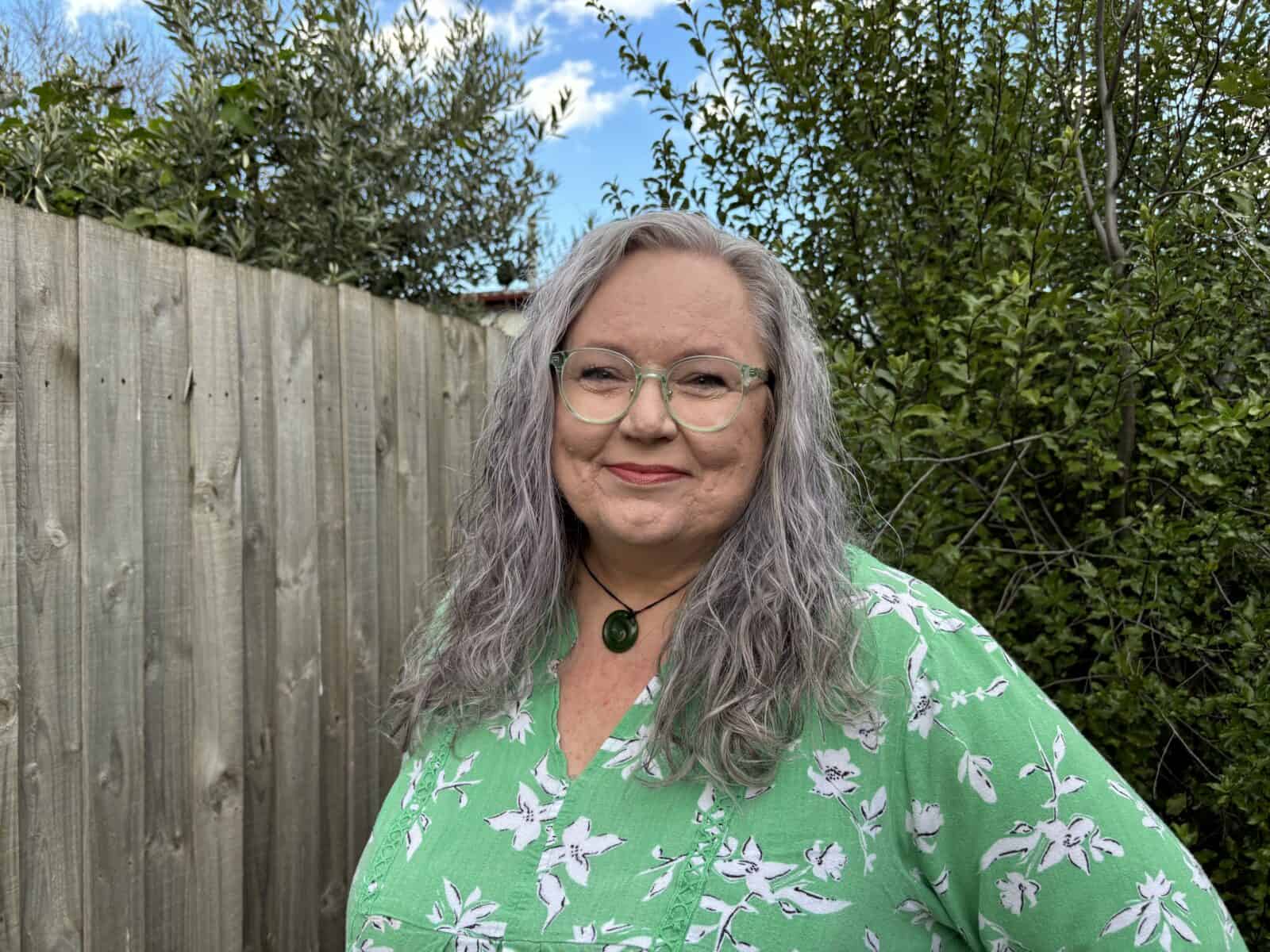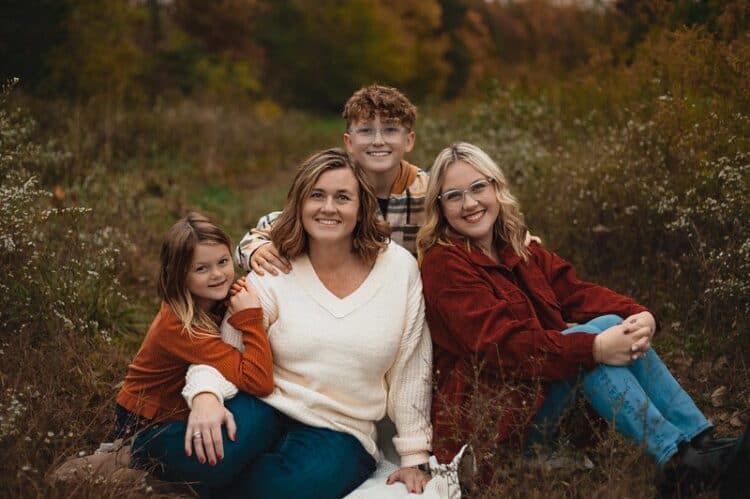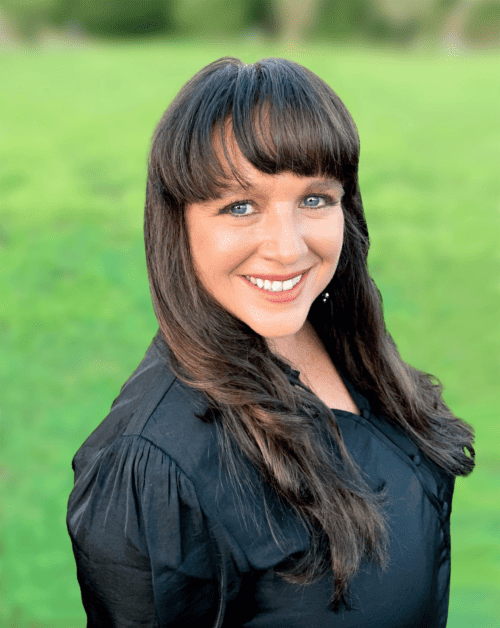Their story was as wholesome as they come – high school sweethearts in the Midwest who got married, had children, and built a happy home together. However, life has a way of throwing curveballs, and for Amanda Campton, the biggest curveball of all came when her husband of 16 years revealed he was gay.
After years of raising kids and making memories, suddenly it felt like the ground had shifted beneath Amanda’s feet. To make matters worse, her husband Dustin decided to come out after they had moved hundreds of miles away from family and friends, living in a new city where they had no support system.
Left with no other choice, Amanda had to come to terms with her new reality and figure out her next move. More than five years later, she’s found a new sense of happiness and rediscovered the importance of family and friends during life’s hardest moments.
Childhood sweethearts become spouses
Dustin was a senior and Amanda was a freshman when they found themselves living on the same street for the second time in their lives, just as they had done when they were young kids. His home life left much to be desired and he didn’t have a lot of money, so when he graduated high school, he moved in with Amanda’s family for a few months while working to save for an apartment. He became a beloved part of her family.
They became engaged when they were both in college, and married in October 2002. Less than two years later, they welcomed their first child, a girl. Five years later, after undergoing infertility treatments, their son was born. In another five years, Amanda would conceive naturally and give birth to their youngest daughter.
“We were a close family, we did everything together. He was my right hand, our marriage was so strong,” Amanda recalled.
A reluctant relocation
Both born and raised in Indianapolis, Amanda and Dustin weren’t looking to move away from friends and family – but when Dustin’s company moved to Jacksonville, Florida, in 2018, they also made the move to the Sunshine State.
They waited until the last minute to move, hoping Dustin would receive a job offer closer to home. When that didn’t happen, they packed up everything and drove south.
“We left our family, a home that we loved, and our great neighbors. It was very traumatic for us.” To make matters worse, Amanda and Dustin had trouble carving out a place for themselves in their new city.
“We felt like outsiders,” she said, adding that she became depressed and lonely after the move.
The one thing Amanda felt sure of during this time was that her marriage was as strong as ever – except for one pretty major detail: Dustin’s sex drive was practically non-existent. He blamed it on low testosterone, but Amanda would soon find out that his testosterone levels were not to blame.
Struggling with a husband’s secret
The day after Christmas 2018, just nine months after Amanda and her family relocated to Florida, Dustin came to her and said he needed counseling.
“I knew my husband didn’t have a great childhood, so I had always thought he would benefit from therapy. I was all for it and offered to help him find a therapist.”
But the real reason he wanted to seek counseling actually had nothing to do with his childhood. He told her, in no uncertain terms, that he wanted help because he was struggling with his sexuality. Amanda was stunned.
She was due to drive up to Indiana to celebrate the holidays with her family the very next day. She continued with that plan, though the drive was far less happy than she had originally anticipated.
“I cried the entire way up there. I drove through the night, I just needed to get home to my support system,” she said. But when she got there, she was hesitant to tell anyone what had happened.
“If this was just something weird he was going through, then I didn’t want anyone to know about it,” she said. “It hit me so hard because other than his lack of sex drive, everything about our marriage was fantastic. We didn’t argue, we got along like best friends,” she said.
As difficult as that season of her life was, the emotions Amanda felt were completely normal, according to Karen Bieman, a registered clinical counselor and certified trauma recovery coach based in Melbourne, Australia.
“Whether it’s a sudden shock or ‘drip discoveries’ over time, the straight partner typically experiences profound psychological distress including shock, denial, anger, and despair. Life as they knew it is obliterated and they are left in the rubble trying to make sense of a reality that was withheld from them throughout the marriage,” said Bieman, who runs the website Not My Closet and is Australia’s only counselor and coach specializing in helping straight spouses who have discovered that their partner is part of the LGBTQ+ community.

Discovery of a secret life
Breaking point happened for Amanda when she decided to check Dustin’s phone – something she had never done before in all their years of marriage. It was then that she discovered countless messages he had sent to men on Grindr.
“I was 950 miles away from family and friends, and there he was sending those messages. I was a stay-at-home mom who was just trying to raise our kids, keep the house together, and keep everybody going. At that point, I decided that none of this was fair to me. I didn’t want to live this way, always wondering what he was doing behind my back and what he was exposing me to.”
During Dustin’s therapy sessions, which Amanda attended, history revealed itself. Dustin had known he was gay since he was a young boy, recalling a time at a baseball game when he was 10 years old, when he noticed the players and their muscles. He had also had a secret relationship with a guy in high school.
Bieman says that in these cases, it can be incredibly difficult for the straight spouse to come to terms with the realization that the marriage was built on intimate sexual deception from the very beginning.
“Ideally, the LGBTQ+ partner will be remorseful, empathic and compassionate, helping the straight spouse to understand the full truth, so they can fill in the missing puzzle pieces and make sense of the relationship…
“Failing that, the straight partner must navigate their own reality reconstruction. This involves deep grief work and processing the feelings of anger about what happened. It’s helpful to work towards separating their authentic experiences from the false reality they were led to believe. They can hold onto what was real in their memories – how they showed up – and have the freedom to choose how they view their partner’s participation in those memories.”
Homecoming to heartache
Florida is a court-ordered alimony state, which meant that Amanda would have received a monthly check if they divorced there. But money didn’t matter at that point. She just wanted to go home.
“I told him that if he would let me take the kids back to Indiana, I would file for divorce there so he didn’t have to pay alimony.” Dustin agreed.
Amanda rented a house for her and the kids, and began working for the first time in many years. Dustin moved back a few months later, staying with Amanda and the children.
“He said he wanted to work everything out, to stay together. I gave him a chance, but he was still active on the apps,” she said, adding that he did not know that phone monitoring software was allowing her to see what he was doing on his phone.
She filed for divorce in March 2020, and Dustin jumped into the gay dating scene almost immediately. He’s been in a serious relationship for the past two years. “He has apologized for the way things played out, but the thing that upsets me is when he says that he wishes he never said anything. All that means is that he wishes he was still living a lie, and that I was still walking around thinking I had the best marriage ever.”
Telling the children
Their three kids found out in three different ways. Their eldest daughter, 15 years old at the time, had noticed how unhappy Amanda had been, and at one point even asked her Dad what he had done to upset her. Shortly after that, Dustin told her the truth.
Amanda and Dustin told their son, nine years old at the time, together. Amanda was worried how he would react to having a gay dad, but he was far more devastated about the divorce itself than he was about the reasoning behind it.
Their youngest daughter was only four years old at the time, but Amanda worries that she is the one who has suffered the most. “The others had us together as a unit for many years, but she doesn’t remember ever seeing us married.”
For Amanda, the hardest part has been trying to keep up the same standard of parenting that she and Dustin once achieved as a team.
“My anger has never really been at Dustin, it’s more about the fact that I’m in this position, parenting by myself. I’m disappointed that we got this far before I found out.”
When she starts to think about what her life might look like now if she hadn’t married Dustin, she reminds herself that she has three beautiful children that she wouldn’t have otherwise.
Amanda says that she and the kids are happy and thriving these days, and credits her support system of family and friends in Indiana with helping her heal – something that Bieman agrees can be incredibly helpful, in addition to therapy.
“My message to anyone who is going through a similar situation is that there is life after this. You just have to focus on what you want moving forward, instead of on all the ways you were wronged – because you’ll never get through it otherwise,” Amanda said.






